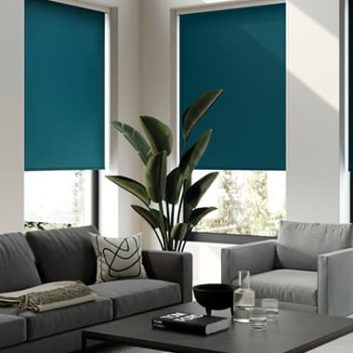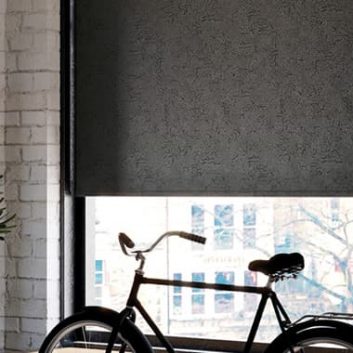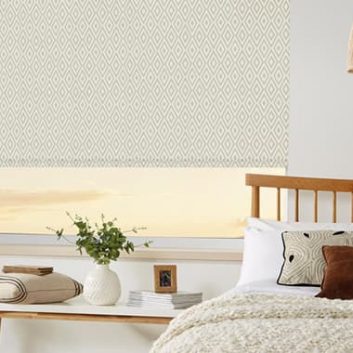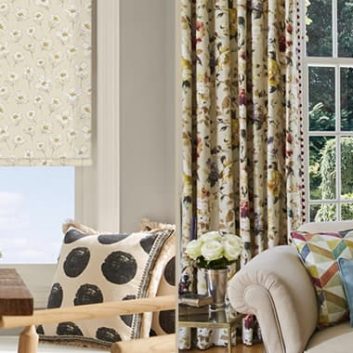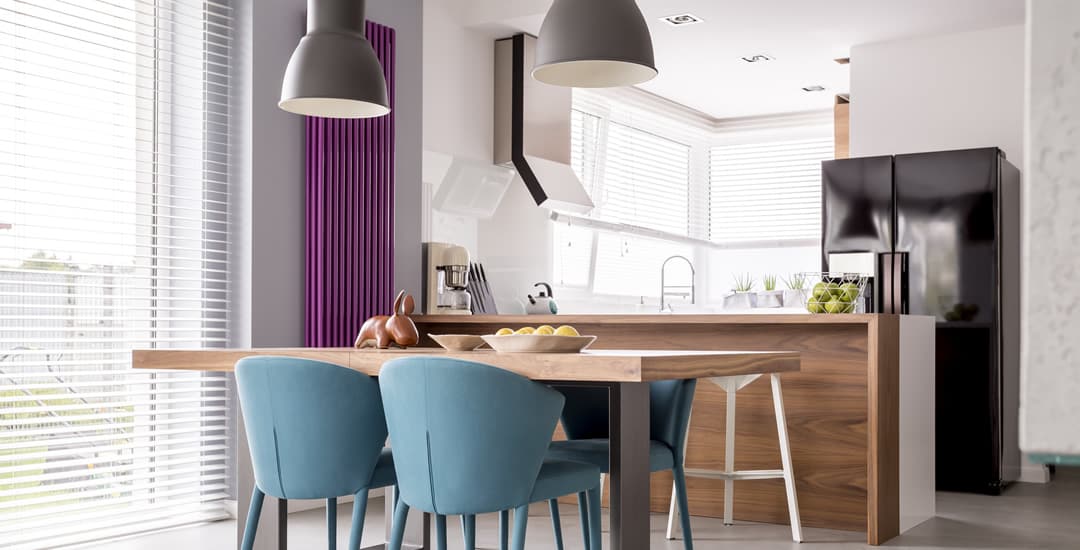
Can you put wooden blinds in a kitchen? This is a firm “maybe.” Real wood blinds are ok for kitchens that are very well ventilated and not subject to any meaningful level of humidity when in use, as long as the blinds/windows are also far enough from the sink and other sources of splattering that they won’t get wet.
This blog post will help you to decide if wooden blinds are a viable choice for your own kitchen, and it will also suggest some alternatives if they’re not.
What’s the potential problem with using real wooden blinds in kitchens?
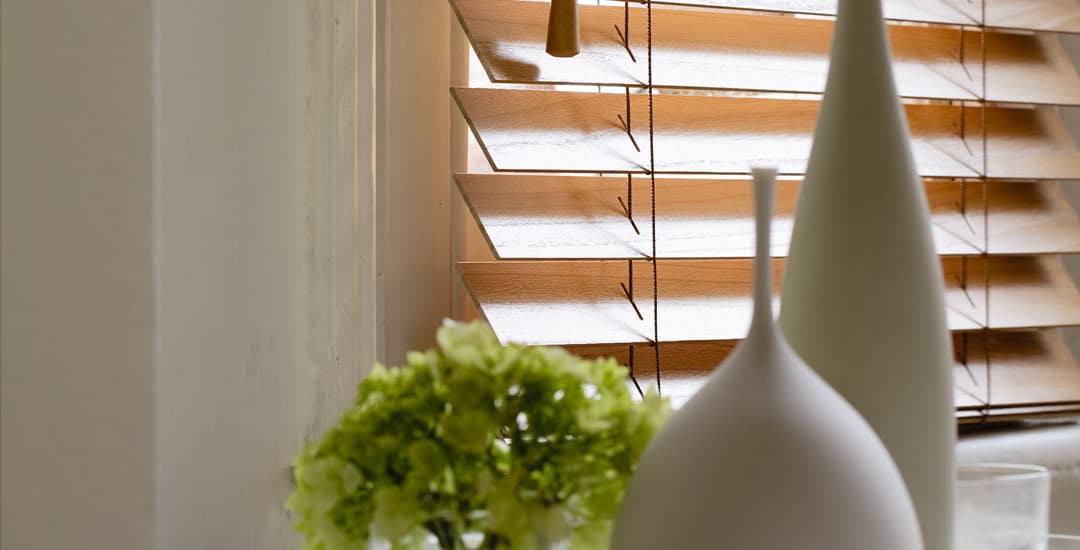
The reason why wooden blinds (real wooden blinds) aren’t necessarily a good choice for kitchens is because they’re not waterproof. This is an obvious problem when it comes to say, water splashing them directly from a sink, or possibly other liquids splashing them from a food prep area.
However, it isn’t direct contact with liquid that’s the greatest potential issue; it’s the humidity that tends to collect in kitchens, often translating into condensation on the windows too. Over time, exposure to kitchen humidity can cause watermarking and discolouration to real wooden blinds, and it may begin to warp their slats too.
This means that for many if not most kitchens here in the UK where we don’t tend to have hugenormous kitchens, wooden blinds aren’t a good pick. However, this isn’t a hard and fast rule that applies to every kitchen; and if you’re trying to work out where yours falls on the “will or will not kill wooden blinds” spectrum, the info below should help you out.
Wooden blinds are one of the more expensive types of blinds too, because they’re made of a natural material and growing, harvesting, transporting, and processing it ethically and in an environmentally sound manner comes at a cost. The only real relevance of this is that choosing the wrong blind for the job and causing the early demise of said blind is apt to result in a greater degree of regret for pricier blinds than if you’d killed off a cheaper alternative…
Are wooden blinds a good idea for most kitchens?
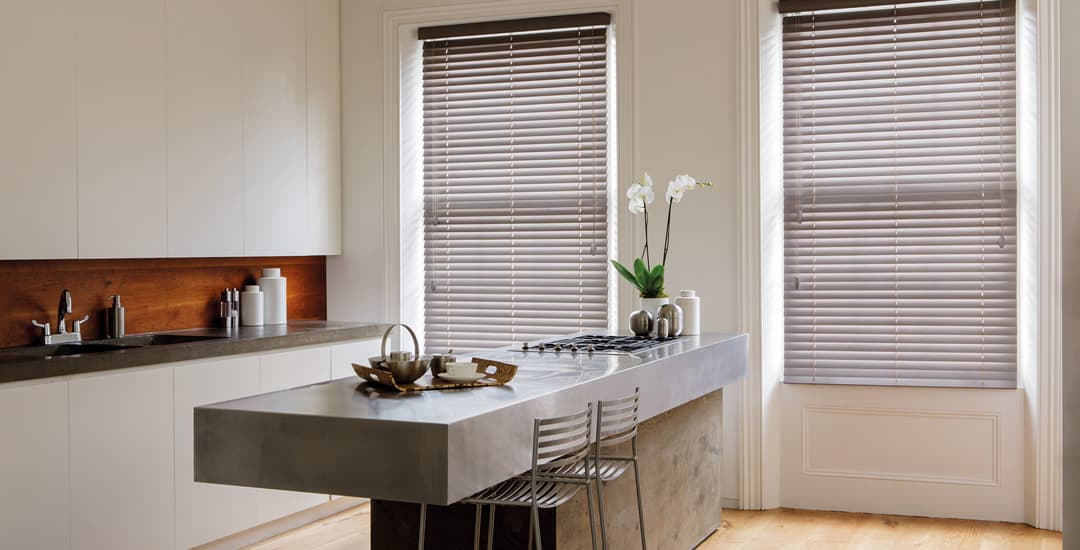
This is a hard fence-sit for me! I would say that wooden blinds aren’t a good idea for at least 50% of kitchens because kitchens tend to be humid and possibly splashy, but they could be a viable option for a reasonable minority.
If you’re moving into a new house and so have yet to get to grips with how the kitchen performs under pressure in terms of humidity and how close the windows are to water or other possible liquids that may splash (such as on a food prep area or hob) then the safest choice is to avoid wooden blinds for the kitchen.
I would also advise steering clear of wooden blinds if you have young children who eat or do crafts in the kitchen if their hand/eye coordination with everything from baked beans to paint isn’t quite what it should be.
If you fry a lot of food or cook a lot of food that might be described as “fragrant” (in the boiled fish or strong curry way rather than the warm baked bread or fresh coffee kind of way) I would also advise against wooden blinds. This is because wood is porous and will become permeated with strong or lingering cooking smells over time; an issue that is often overlooked.
For those who are keen on fried foods, the vapourised fat in the air will eventually build up a residue on a wooden blind (or any type of blind), which also then attracts dirt to stick to it. This isn’t an issue for waterproof kitchen blinds, as you can just wash/wipe them off. Wooden blinds can’t be washed or made seriously wet, which means that resolving this sort of issue can be impossible without damaging the blind itself.
Can you put wooden blinds in a kitchen that is small or steamy?
If your kitchen is small (and so, the blinds will be in reasonable proximity to the sink or other liquids regardless of where they are) and/or gets humid and steamy if you’re cooking on the hob or even make a lot of kettle-led hot drinks, then wooden blinds aren’t a good idea.
If you do happen to have a sink that doesn’t splash anywhere near the window and either an extractor fan that’s apt to lift your hair if you get too close or otherwise unusually good ventilation, then you might be able to choose wooden blinds. I would still advise proceeding with caution, however.
Ok then, can you put wooden blinds in a large, well-ventilated kitchen?
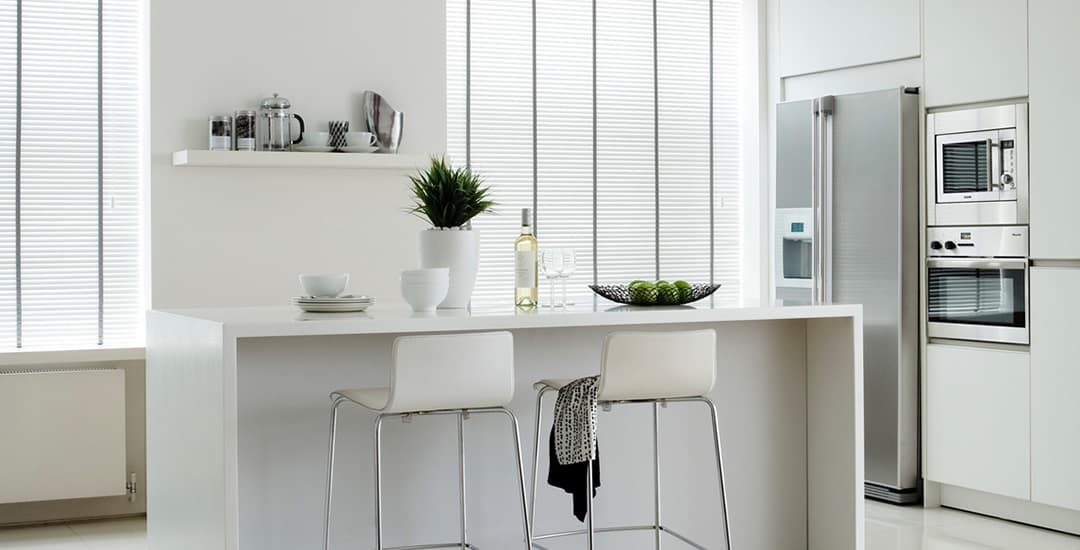
In theory, this should be fine. If the windows/blinds are no closer than yelling distance from your sink and other liquids, plus your kettle and also hob (sources of steam) are also either distant or served by amazing ventilation or extractors, wooden blinds might be a viable choice.
However, if you are in any doubt, please make another choice.
What kind of blinds are suitable for kitchens if wooden blinds are out?
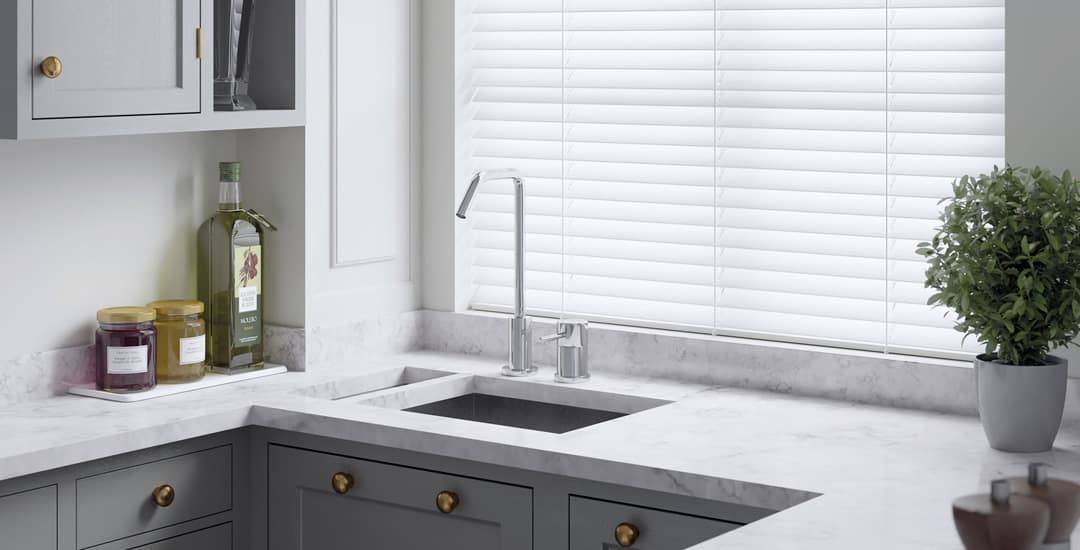
If you’ve determined that wooden blinds aren’t going to be a sound choice, what kind of blinds are suitable? The most obvious option is faux-wood blinds; these are made of PVC, and emulate the appearance of real wooden blinds very closely while also being waterproof and extremely hardwearing.
Any other type of blind that is waterproof is fine for a kitchen too, which means PVC or vinyl roller blinds or vertical blinds respectively (but not the polyester variants of these) and potentially, Venetian blinds as well.
Venetian blinds are another on-the-fence choice for kitchens, because while their slats are waterproof, the fabric lift cords that run through them are not. However, these will be a safe choice for most kitchens that are borderline for wooden blinds; they’re less likely to suffer than a wooden blind used in the same scenario.

